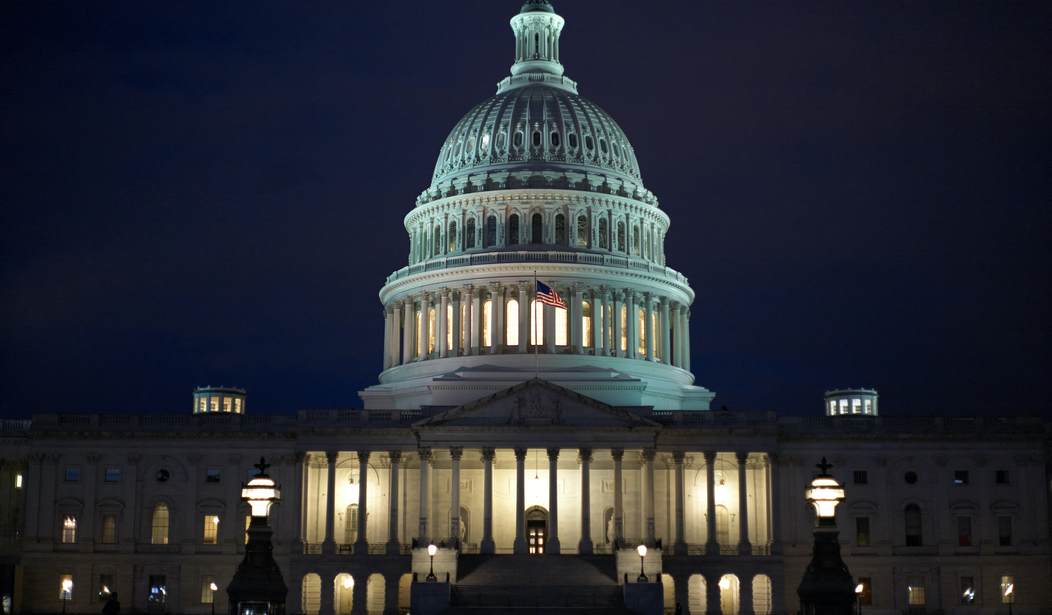It is absolutely absurd that the 117th U.S. Congress is on the cusp of sending a $1.7 trillion “omnibus” spending bill to President Biden’s desk just days before Christmas and just weeks before the 118th Congress will officially convene.
Congress has had months to negotiate appropriations bills to keep the federal government funded. However, as per usual, our feckless “representatives” have waited until the very last minute to push through yet another mega-spending bill in the waning days of the year, before they head home for the holidays.
In 1974, Congress passed the Budget Control Act (BCA), which sought to reform and streamline the process for passing the federal budget. Per the BCA, the president submits his budget proposal to Congress. Then, Congress is supposed to submit its budget resolution by April 15. Thereafter, Congress is supposed to pass the requisite appropriations bills (currently, this stands at 12) by October 1, the beginning of the fiscal year.
Voila, that’s it. The president tells Congress his budget priorities near the start of the year. Congress passes a budget framework by April 15. And, after months of debate and negotiations, Congress passes 12 separate spending bills by October 1 so the entire federal government is funded properly, on-time, and with a decent amount of transparency.
Since 1974, Congress has followed that simple formula to fund the federal government only four times. The last time our dysfunctional Congress completed this simple plan was in 1996.
So, since 1997, Congress has ignored its own law and made a monumental mess out of passing our nation’s budget.
Recommended
Indeed, over the past two decades, Congress has made a total mockery of the BCA. What’s worse, in recent years, they have succumbed to an all-new low: continuing resolutions (CRs) and omnibus bills.
In a nutshell, CRs are a budgetary gimmick used by Congress to keep programs funded at previous levels. While CRs cannot introduce new funding for new programs, they can allow Congress to keep kicking the budgetary can down the road. Since 1997, CRs have been passed dozens and dozens of times. Some have been as short as one day while others have extended current program funding for full fiscal years.
As if relying on CRs to keep the government lights on wasn’t pathetic enough, in the past few years, Congress has stooped even lower by embracing what are called “omnibus” budget bills.
In short, omnibus budget bills allow Congress to mash the 12 separate appropriations bills into one massive spending bill that they inevitably load up with as much pork (pet spending projects) as possible so that everyone (except the few fiscal hawks left in Congress) goes home happy.
Before the late 2000s, omnibus spending bills were few and far between. Sadly, over the past decade in particular, omnibus spending bills totaling well north of $1 trillion have become the new normal.
This year, Congress has loaded up its annual omnibus spending bill with more than 7,000 earmarks. As the thinking goes, if you are a member of Congress, why not insist that you won’t support the omnibus spending bill unless you get a few special projects to benefit your district or state?
The current omnibus bill spans a whopping 4,000 pages, which means absolutely no member of Congress can possibly read the bill in full before they vote on it.
The time has come for the American people to demand better from the people we elect to represent us. Because our elected representatives for far too long have demonstrated that they are incapable of passing a budget according to their own procedures, it is incumbent upon those of us who care about our nation’s future to say “enough is enough.” No more CRs. No more missing budget deadlines. And, most importantly, no more omnibus bills.
Every entity in America, whether it be a family, business, non-profit agency, church, school, etc. must pass and adhere to a sound budget each and every year, lest they fail to exist. It is time that we make Congress follow this age-old rule, too.
Chris Talgo (ctalgo@heartland.org) is editorial director at The Heartland Institute.

























Join the conversation as a VIP Member